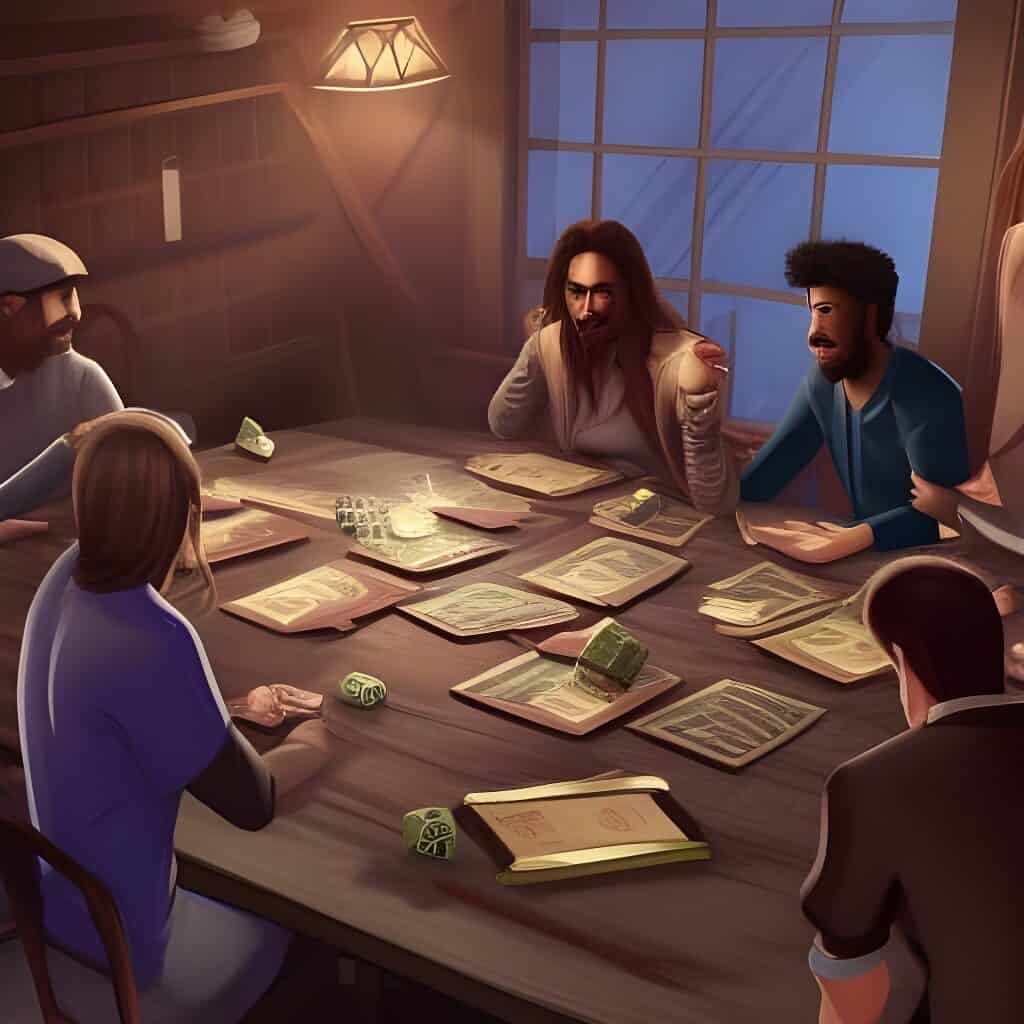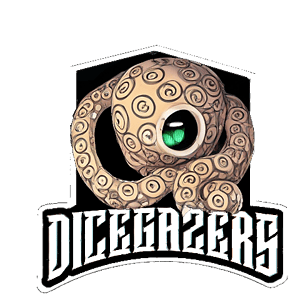It’s fun to play tabletop roleplaying games(TTRPGS) with friends, however, moments occur when it’s not fun. Here are some tips for creating a more enjoyable gaming experience.
To start with remember that enjoyment is a mindset. What you decide is a problem, becomes one and what you choose to feel is based on what you believe others mean. So first of all get your thoughts and feelings in order to use the rest offered below.

Engage in collaborative storytelling
RPGs are a form of collaborative storytelling, so it’s important to engage in the story and work with the other players to create a memorable experience. Encourage other players to share their ideas and build upon them to create an engaging story.
As a GM it’s important to reward players just for trying. Often times players will shut down because their ideas don’t seem to be helping. If you find yourself with this happening a lot then it may be time to have a conversation with the players and ask them why they don’t try contributing.
If you find out it’s because their actions seem to be punished just for trying then take a different approach to GMing. In our philosophy article, we discuss some ideas as in our How to GM article.
As the subheading states, it’s collaborative storytelling so think more of it that way. You as the GM are working with the players to create a partnership story. Don’t just give them what they want but don’t punish their efforts either. To do that you may need to help them create more varied characters.
Play interesting characters
Creating interesting characters can help make roleplaying more fun, for all involved. Play a character that is different from your usual personality or try out a new race or class. This can help you step out of your comfort zone and create a more engaging roleplaying experience.
Read Hack and slash vs character focused games to learn these game types
One of the things you should avoid is creating a character set that contradicts itself. While you might think you are being clever, and impressive the opposite actually occurs. If you made a dull, nonconversational bard, you aren’t going to win a singing contest. Now that’s a silly example, there are others such as a nonviolent assassin (no.. it’s not funny.. no it doesn’t actually make sense).
As player characters help your GM out by creating character builds that you think are fun, interesting, exciting, and all that. Most importantly help the GM by adding elements to their backstory that would cause your character to get involved in the story they are presenting. Simply adding that they are heroic in nature is usually enough(they go out trying to right wrongs, do what’s right, etc).
Make roleplaying fun by adding humor
Incorporating humor into your roleplaying can make the experience more enjoyable for everyone involved. Add jokes or witty remarks to your character’s dialogue, or create a comedic scenario to lighten the mood. Just make sure that the humor is appropriate for all players.

Develop relationships
Depending on the person this can be with other players or with other characters. I prefer to develop relationships with players rather than any sort of romantic type in-game relationship. That said I have done that in the past, in fact, it took doing so to recognize it wasn’t important to me.
I do however find it fun to create backstories that develop my character. These backstories can include possible rivalries, character traits, personality traits, and other elements. The Rifts “rounding out a character” section after character creation is a fantastic option to use for any character in any game setting.
Use miniatures and other visual elements
Miniatures and tokens help represent characters, NPCs, and monsters in a game environment. They help to really immerse yourself into the situation. If you use tiles for dungeons for instance it helps you get an idea of what is around, what you can and can’t use skill (or spell) wise, etc.
When playing in person this is by far my favorite thing to do with a party. You don’t need to be super precise with the environment pieces but at least having a character miniature is a minimum. Other than that, just having a mat with watercolor markers so you can vaguely draw out the scenario is good enough.
If you have a GM or players willing to go the extra mile of building entire dungeons, and valley-style encounters bring them a pizza for their troubles.
Check out this post about roleplaying tools like dice, virtual tabletops, and more.

Player choice makes roleplaying fun
Player agency is an important part of RPGs, as it allows players to make meaningful decisions that affect the story. Encourage players to make their own decisions and create their own paths within the story. This can help create a more immersive and enjoyable experience for everyone involved. Here are some things to add more player choices:
- Take their actions and run with them. Instead of tying all story progression to specific things let players come up with ideas and if they could work go with them.
- Don’t punish player decisions. Too often we add a negative to everything that players decide to do. This behavior is not needed all the time because if things don’t go in the player’s favor that is punishment enough.
- Reward players roleplaying. Get rid of the scarcity mindset in roleplaying and reward players with bits of money, items, spells, scrolls, etc. The more player choices available the more they will engage in roleplaying.
Make roleplaying fun with a cooperative mindset
One of the worst scenarios is having a player vs GM situation. Instead, look at it as the players and the GM working together to make roleplaying fun. The GM comes up with story ideas, the players are interacting with the world to find out what those stories are. No matter how strong your players are they never have enough people to “beat” the GM, so don’t get to that point. Here are some ways for players to work WITH the GM.
- Select a group leader. When you do this, it helps to make sure that actions get decided and taken. I see many groups give out ideas but nobody actually says what’s being done. This causes the group to sit there for a long time while the GM waits for someone to decide.
- Give your ideas to the group. If you are new and feeling embarrassed, just give ideas. If nobody is working together it’s really difficult for the GM to turn your plans into anything.
- Ask for ideas if you are out of ideas. Look over your character’s skills, equipment, spells, psionics, etc., and ask if you can do something with it all to find out the next clue. If you have done that, ask the GM “What can I use to help the game move forward?”. If the GM doesn’t allow for it then it’s not on you, you’ve done what you can.
